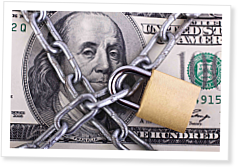
Why your doctor only wants to see you after something has gone wrong.
Dr. Stephen Schimpff calls it the paradox of American medicine.
“We have really well-trained, well-educated providers. We are the world’s envy for biomedical research. We’ve got excellent pharmaceutical (and) biotechnology companies and diagnostics (tools). But the paradox is on the other hand we have a terribly dysfunctional health-care delivery system,” said the retired CEO of the University of Maryland Medical Center in Baltimore.
Despite our technology, education and wealth—in 2014, total national health-care expenditures hit US$3 trillion—chronic disease remains the nation’s top killer, with seven of the top 10 causes of death in 2010 stemming from chronic illnesses such as heart disease, stroke, cancer, Type 2 diabetes and obesity. In 2010, 86 percent of all health-care spending was attributed to chronic disease—conditions labeled preventable by the Centers for Disease Control.
So why are we still so sick?
“America does not have a healthcare system; we have a ‘disease industry,’” Schimpff wrote in a 2010 article. “We focus on disease and pestilence and do a good job of caring for those with acute illnesses and trauma. But we certainly do not address health well and we are not good at caring for chronic illnesses.”
It’s an industry based on one fundamental problem, Schimpff said.
“We don’t put our money where we could have a huge impact, which would be prevention and wellness.”
To read the entire article, click here.
No comments:
Post a Comment